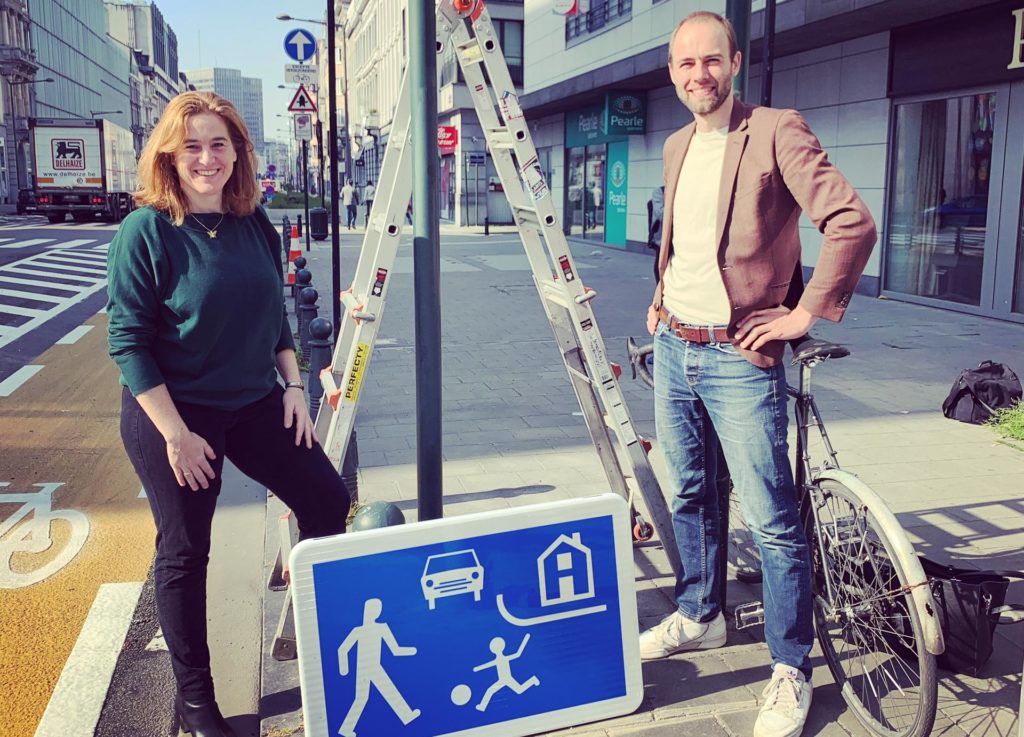Brussels' city centre will become an entirely residential area where vehicles will no longer have road priority from next week, mobility officials announced.
The first road sign indicating that the area contained within the inner ring road and known as the pentagon would be now a residential area was put up on Friday.
"From 11 May, the pentagon will become a residential area," Brussels city councillor for mobility, Bart Dhondt wrote on Facebook.
Mobility authorities will aim to put up a total of 155 signs throughout to inform residents that pedestrians, cyclists and other types of non-motorised transportation would have priority over vehicles from next week.
Related News
- Brussels turns Rue de la Loi car lane into cycle path
- Coronavirus: traffic in Flanders slowly increasing again
- Brussels greenlights generalised 30km/h zone
"The objective is to free up space so that social distancing rules can be better followed during the deconfinement," he said.
The changes will reduce the maximum speed limit to 2o kilometres, a change which comes amid wider plans to scale down the speed limit in all roads of the Brussels-Capital Region to 30 km/h, with only some roads keeping the previous limits of 50 or 70 km/h.
Regional authorities in Brussels have seized on the slowdown brought on by the coronavirus lockdown to lead a push to cut back on vehicle use in the capital and move ahead with a Good Move mobility plan.
As Belgium begins to gradually exit the coronavirus lockdown and ease back into regular activities, Regional Mobility Minister Elke Van Den Brandt has been working with local authorities to implement 'Slow Streets' where the speed limit is capped at 20 km/h and vehicles no longer have priority.
At the same time, Van Den Brandt announced a boost to cycling infrastructure by rolling out 40 additional km of cycling paths within the region, including in some of its busiest roads, in an effort to keep people off public transportation.
The minister's move to relocate space usually taken up by car has been highly polarising, alternatively raising praise and criticism on social media.
Like Brussels, several capitals and cities around the world are looking to emerge from their lockdowns with improved cycling infrastructure, in the image of Paris, Mexico City, Bogotà or Berlin.
Gabriela Galindo
The Brussels Times

